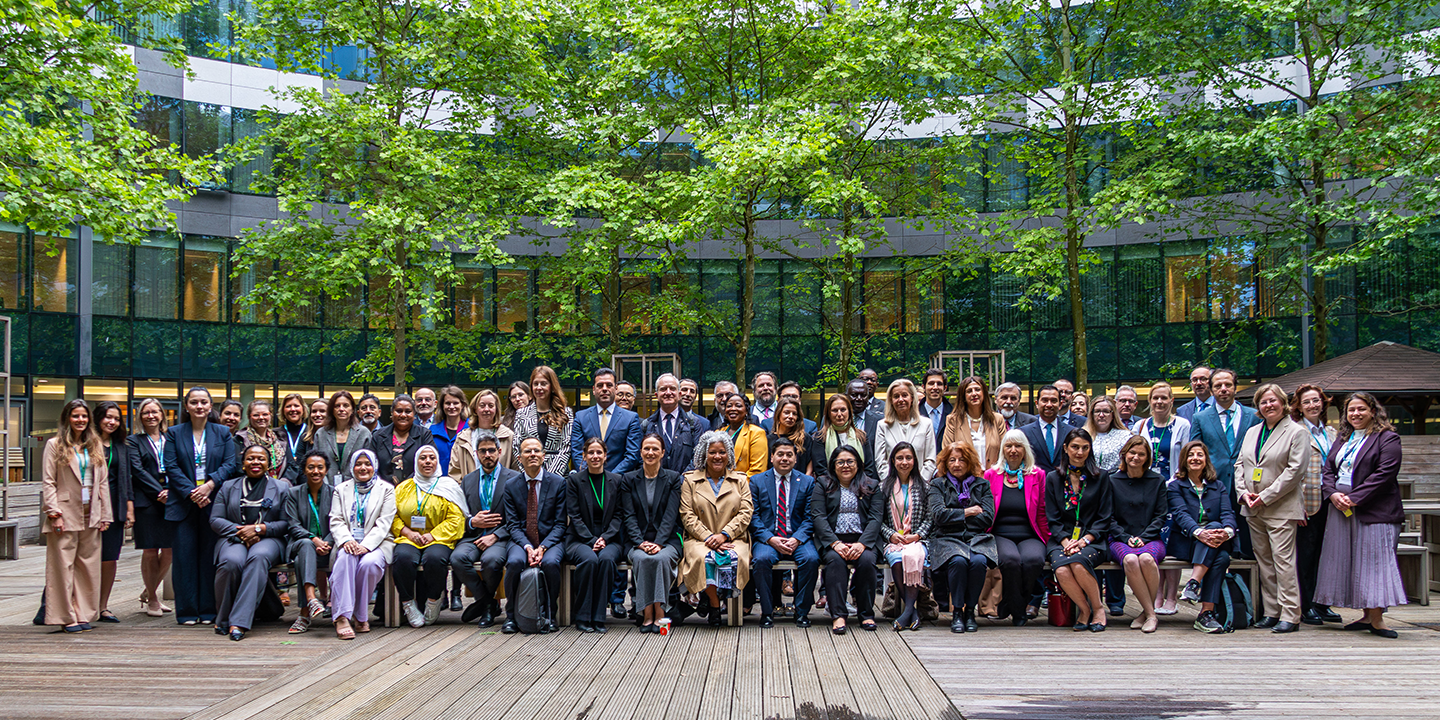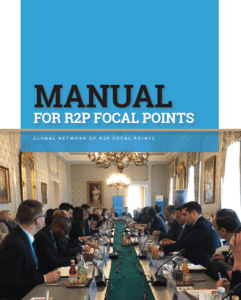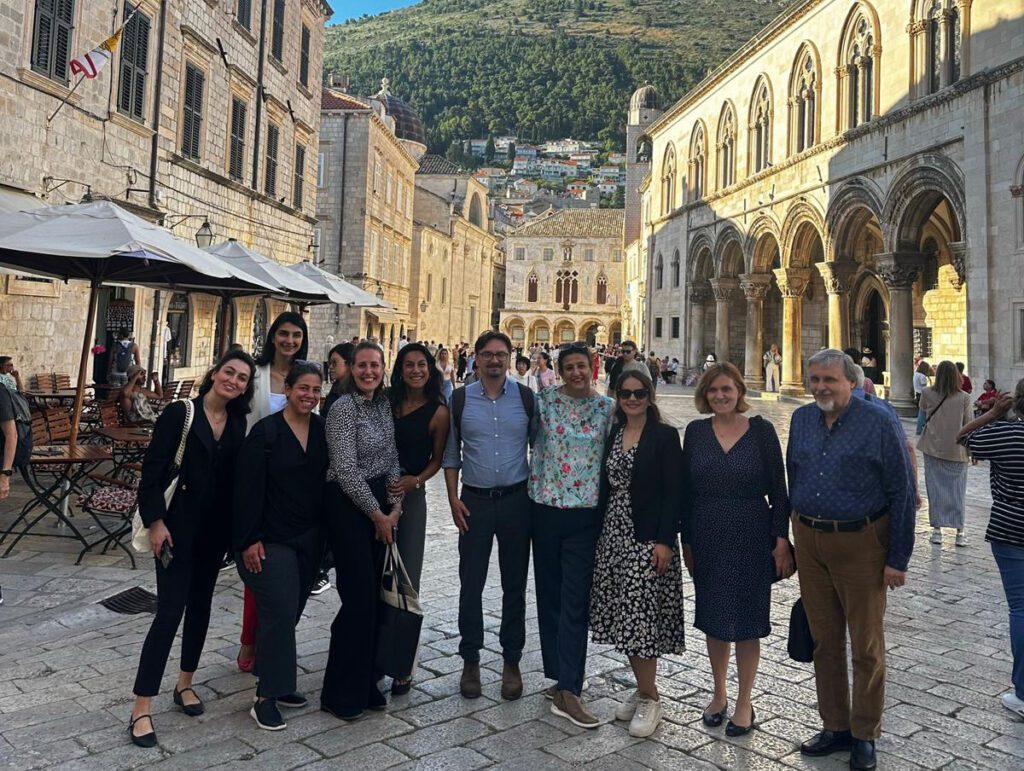

An important step that governments can take to improve intra-governmental and inter-governmental efforts to prevent and halt mass atrocities is the appointment of a national R2P Focal Point.
An R2P Focal Point is a senior official within a government who facilitates national mechanisms for atrocity prevention and promotes international cooperation by participating in the Global Network. Appointment of an R2P Focal Point is a step that can be implemented by governments to demonstrate their commitment to mass atrocity prevention, regardless of their capacity.
The Global Network of R2P Focal Points was launched in September 2010. A facilitating group of countries, including Denmark, Ghana, Australia and Costa Rica, in collaboration with the Global Centre for the Responsibility to Protect, aided in the launch and development of the Global Network. The Global Centre acts as the Secretariat of the Global Network and co-convenes an annual meeting of R2P Focal Points with member states.
Membership in the Global Network has expanded to include more than 60 senior-level representatives from countries in all regions of the world. The European Union and Organization of American States have also appointed an R2P Focal Point.
Members of the Global Network include states that have never experienced mass atrocities domestically to those with populations currently experiencing or at imminent risk of genocide, ethnic cleansing, war crimes and crimes against humanity. The diversity of the membership demonstrates that governments with different levels of prevention experience and governmental capacity can benefit from being a member of the Global Network.
The placement of an R2P Focal Point within a national system is a decision of each individual government that takes into account its structure and priorities, including whether the R2P Focal Point’s responsibilities are focused upon national or international atrocity prevention. R2P Focal Points come from a variety of ministries and departments within their governments, including the Ministry of Foreign Affairs, Ministry of Justice, Ministry of the Interior and National Peace Council.
 The Manual for R2P Focal Points was written by the Global Centre for the Responsibility to Protect as a tool that offers practical guidance to R2P Focal Points. The Manual provides an overview of the Responsibility to Protect and outlines tasks that R2P Focal Points should undertake from the time of their appointment until they leave their position. It details activities and initiatives for R2P Focal Points regarding how to operationalize atrocity prevention within their departments and governments. While the information in the Manual is not exhaustive, we hope it will inspire R2P Focal Points to explore how other thematic issues relate to their work.
The Manual for R2P Focal Points was written by the Global Centre for the Responsibility to Protect as a tool that offers practical guidance to R2P Focal Points. The Manual provides an overview of the Responsibility to Protect and outlines tasks that R2P Focal Points should undertake from the time of their appointment until they leave their position. It details activities and initiatives for R2P Focal Points regarding how to operationalize atrocity prevention within their departments and governments. While the information in the Manual is not exhaustive, we hope it will inspire R2P Focal Points to explore how other thematic issues relate to their work.
Meetings of the Global Network have been held in New York, USA (2011, 2012), Accra, Ghana (2013), Gaborone, Botswana (2014) Madrid, Spain (2015), Seoul, Republic of Korea (2016), Doha, Qatar (2017), Helsinki, Finland (2018), the European Union in Brussels, Belgium (2019) and Washington, D.C. (2022). In addition to these meetings, during 2012 the Global Centre, in collaboration with the Stanley Foundation, convened UN member states, UN officials and mass atrocity specialists for a preparatory workshop in February 2012 to establish recommendations for states on how to appoint an R2P Focal Point. During these annual meetings R2P Focal Points discuss their role within their governments as well as substantive ways to prevent mass atrocity crimes and protect vulnerable populations. The annual meeting is an opportunity to share best practices and strengthen ties between members.
In addition to the annual meetings of the Global Network, R2P Focal Points have also convened three regional meetings in Europe and have also held annual informal gatherings on the sidelines of the opening of the UN General Assembly in New York. The Secretariat also facilitates “Global Calls” to encourage direct communication between R2P Focal Points in different countries outside of the annual meetings. Some R2P Focal Points also work collaboratively on joint advocacy, capacity building projects within member countries, workshops and training. The Secretariat helps facilitate these efforts.
The Steering Group of the Global Network of R2P Focal Points was established in March 2019 to strengthen the Global Network by undertaking relevant activities at and in between the annual meetings. The Steering Group is comprised of several R2P Focal Points and the Secretariat. Current Steering Group members include: Australia, Denmark, Ghana, Lithuania, Slovenia and the Global Centre. The Steering Group aims to make the Global Network more operational and identify best practices and strategies that will enhance the role of R2P Focal Points within the national and multilateral context.
On 23 and 24 May 2024 the Global Centre hosted a training for R2P Focal Points from eastern European countries, including Croatia, Georgia, Hungary, Montenegro, Poland and Romania. The training familiarized the participants with atrocity prevention and the role of an R2P Focal Point, as well as enhanced their collective understanding and capacity to respond to potential mass atrocity situations. The training covered a range of critical topics, including early warning mechanisms, mobilizing responses within respective systems, strengthening ties with civil society and improving coordination with other members of the Global Network to address the threat of mass atrocities both domestically and internationally. The interactive training, facilitated by Global Centre staff, fostered peer-to-peer learning, with participants sharing their reflections from the field and discussing how these tools could be applied during their day-to-day activities. By the end of the training, participants gained a robust understanding of the challenges and opportunities in implementing R2P and the range of actions their systems can take to operationalize atrocity prevention.

Ralph Bunche Institute for International Studies
The Graduate Center, CUNY
365 Fifth Avenue, Suite 5203
New York, NY 10016-4309, USA